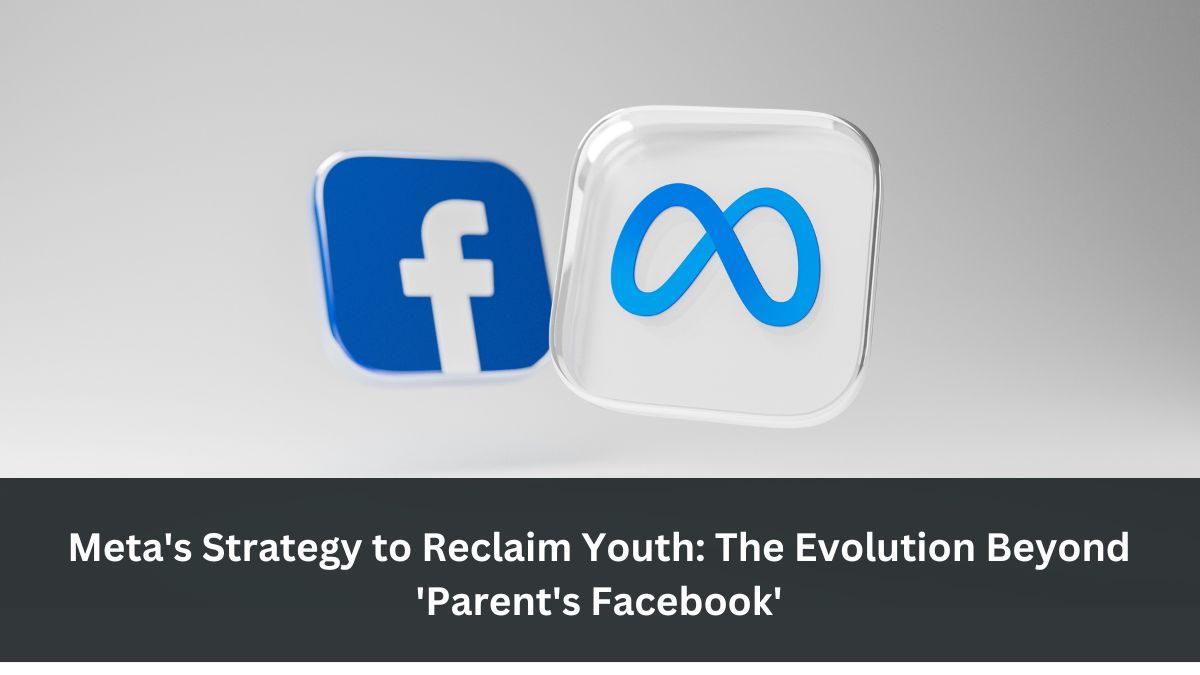Social Media
Meta’s Strategy to Reclaim Youth: The Evolution Beyond ‘Parent’s Facebook’

As Facebook celebrates its 20th anniversary, the platform finds itself grappling with a significant challenge: how to stay relevant to younger generations, specifically Gen Z. Despite having 40 million daily active users in the U.S. and Canada between the ages of 18 and 29, this demographic only represents about 19% of its North American user base. The majority of Facebook’s daily active users now belong to older generations, leading to a reputation that the platform is predominantly frequented by boomers sharing outdated memes and misinformation.
The Gen Z Conundrum
The Decline in Teen Usage
Over the past decade, Facebook has seen a dramatic drop in teen usage. This trend has been a cause for concern as the platform aims to stay relevant in an ever-evolving digital landscape. The company is finally opening up about its Gen Z user numbers, revealing a marginal but notable progress in winning back younger users. According to Tom Alison, head of Facebook, the platform needs to ensure its social products cater to younger audiences to remain relevant.
“In order to continue to be relevant, we need to make sure that the social products that we build work for them,” Alison said. This acknowledgment underscores the strategic shift Facebook is undertaking to appeal to Gen Z.
Strategic Shifts to Attract Gen Z
Refocusing the Core Product Suite
Facebook has made three significant changes to its core product suite to attract younger users:
1. Feed Optimization: The platform has refocused on the discovery of content relevant to younger audiences. This includes shoppable goods in its Marketplace feature, dating, groups, and events. Features that were not core to social discovery, such as audio and news products, have been shuttered to streamline user experience.
2. Emphasis on Reels: Recognizing the popularity of short-form video content, Facebook has put greater emphasis on Reels. This feature allows users to create and share short videos, akin to TikTok, and has made it easier for users to share this content privately via messaging. Alison notes that private sharing on Facebook has grown 80% year over year, highlighting the success of this feature.
3. Creator-Friendly Environment: To make the app more appealing to content creators, Facebook developed a professional mode. This has attracted over 100 million daily active users globally who follow at least one professional page. This move aims to harness the influence of creators to engage younger audiences.
Engagement Across All Cohorts
These changes, although primarily aimed at Gen Z, have also improved engagement across other user groups, including older users. Alison believes that the U.S., often a bellwether for global trends, will lead the way in demonstrating the effectiveness of Facebook’s new focus on younger audiences.
Marketing to Gen Z
Event and Campaigns
To ensure Gen Z is aware of Facebook’s new direction, the company has ramped up its marketing efforts. Recently, Facebook hosted an event in New York for younger creators, underscoring its commitment to remain relevant for another two decades. Attendees received pamphlets declaring, “We are not your mom’s Facebook,” positioning the platform as a hub for all things culturally happening.
Generative AI and Content Recommendations
In addition to these marketing efforts, Meta is investing in generative AI to shape content recommendations and boost engagement. While Meta continues to invest in mixed reality and the metaverse, there is now a stronger focus on how AI can enhance the user experience across its social apps.
Differentiation from Instagram
One of the key strategies discussed by Alison is how changes to Facebook differ from Meta’s plans for Instagram. While Instagram focuses more on content discovery and creator connections, Facebook is targeting young users through experiences like groups, events, and dating. This distinction is crucial as it allows each platform to cater to different aspects of the user experience, ensuring a comprehensive approach to social engagement.
The Potential Impact of a TikTok Ban
Opportunities and Uncertainties
A potential TikTok ban poses an interesting scenario for Facebook. While it could be a boon for Facebook’s efforts to attract younger users, Alison emphasizes that their strategy does not hinge on this possibility. “While we’re kind of watching it, we haven’t really adjusted our road map or are planning any kind of changes, because we just don’t still don’t exactly know how that’s all going to play out,” he stated.
Personal Anecdotes: Bridging the Generation Gap
As someone who has been a Facebook user since its early days, I’ve witnessed the platform’s evolution firsthand. In its infancy, Facebook was the go-to place for college students to connect and share their lives. However, as the user base expanded to include older generations, the dynamics shifted. Today, my teenage niece scoffs at the idea of using Facebook, preferring the likes of TikTok and Instagram. This generational gap is precisely what Facebook aims to bridge with its new initiatives.
The Road Ahead: Staying Relevant in a Changing Landscape
Facebook’s journey to win back the youth is not without its challenges. The platform must continuously innovate and adapt to the ever-changing preferences of younger users. By focusing on relevant content discovery, short-form video, and a creator-friendly environment, Facebook is making strides toward reclaiming its appeal among Gen Z.
Facebook’s efforts to attract Gen Z reflect a broader trend of digital platforms evolving to meet the needs of younger audiences. For businesses and individuals alike, staying attuned to these shifts is crucial. As Facebook continues to innovate, it offers valuable lessons in adaptability and user-centric design.
To the readers: How do you see the future of Facebook? Will these changes succeed in winning back younger users, or is the platform destined to remain a haven for older generations? Engage with us and share your thoughts. Let’s explore how we can all stay relevant in this rapidly evolving digital world.
